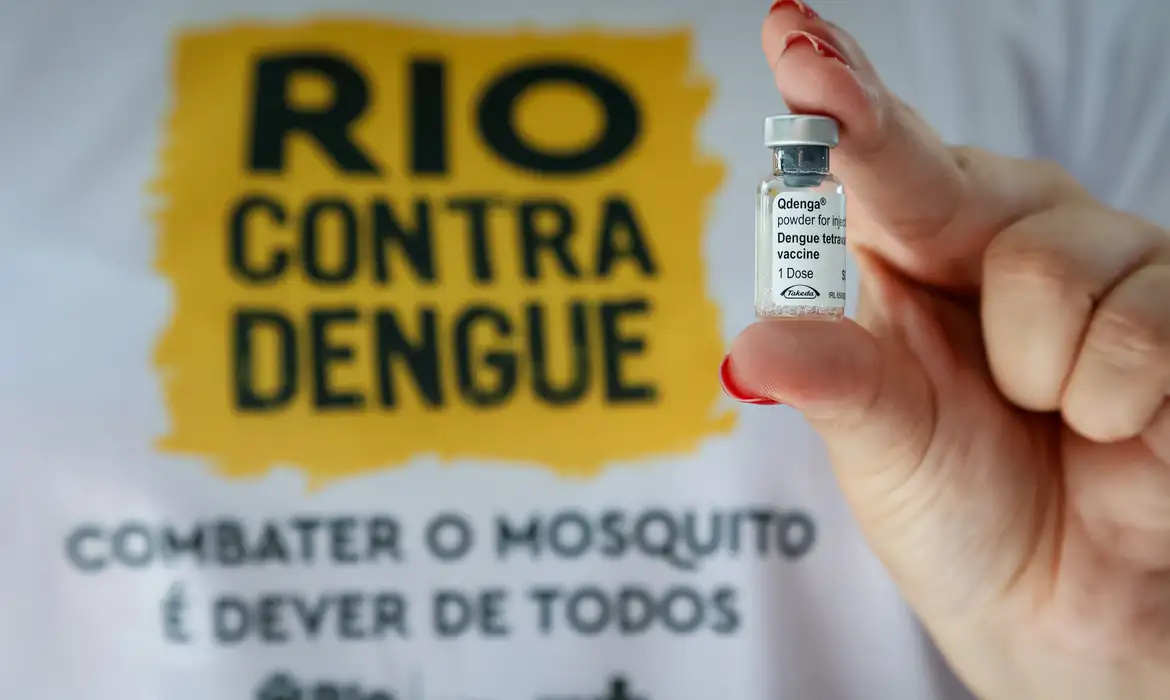
LUANA LISBON
SÃO PAULO, SP (FOLHAPRESS)
The redistribution of dengue vaccines is based on the absolute number of dengue cases in municipalities, which are monitored from 2023 to 2024.
The criteria for distributing doses among municipalities does not consider either the incidence -cases per 100,000- or the number of hospitalizations. Other criteria considered in the choice are the size of the city (with a population greater than or equal to 100 thousand inhabitants), the high transmission of dengue fever in the last ten years and the predominance of serotype 2 of the virus.
The recommendation from the Ministry of Health was published in a technical note last Thursday (28).
The information is contrary to what had been stated by the Minister of Health, Nísia Trindade, during a press conference on March 20th. The director of the department had said that the redistribution of unused doses would take place based on the ranking of municipalities in a dengue emergency situation.
According to the ministry, it has not yet been possible to include, at this time, all municipalities in an emergency situation for redistribution, since the quantity of doses is limited to the operational and logistical capacity of the producing laboratory.
The ministry defined that, in addition to the 521 municipalities initially selected, another 165 would be included in the vaccination expansion strategy, totaling 686 cities. The target audience remains children and teenagers between 10 and 14 years old. In São Paulo, 50 cities in the state were included in the redistribution proposed by the federal body, including the capital.
Operationalizing redistribution and choosing the target audience to receive the vaccine is not easy, says immunologist Renato Kfouri. According to him, the understanding is that the best age range for vaccination would be between 6 and 16 years old, since there is a higher hospitalization rate at these ages.
“There are around 150 million Brazilians who are candidates to receive vaccines and only 3 million doses to choose who to vaccinate. Of course, any rule will leave someone who needs the vaccine out. It is also not easy engineering to choose the municipalities”, says Kfouri.
The doctor points out that the situation is different from the Covid pandemic, when it was possible to carry out a national vaccination campaign. The Qdenga vaccine, for example, is not eligible for the elderly or children under 4 years of age. “Electing and establishing criteria is useful, perhaps not to make the fairest decision, but to justify the reasons for the decisions”, he adds.
See the following questions and answers to understand the redistribution of vaccines.
WHY REDISTRIBUTE?
The redistribution was a decision taken by the Ministry following low vaccination adherence, as there are batches of the vaccine that begin to expire from April 30th.
According to the federal government, there are 668,000 doses close to expiry date on April 30; another 523 thousand will expire in June and 84 thousand in July.
WILL MUNICIPALITIES THAT PROVIDE DOSES RECEIVE REPLACEMENTS?
The doses will be redistributed on a loan basis, that is, there will be replacement by the Ministry of Health, according to the laboratory's delivery schedule. The number of doses to be made available must be a decision of the municipalities.
As of last Friday (29), three locations had already signaled to the Ministry the internal relocation of 33,360 doses: the Brasília health region (11,720), in the Federal District, Alto Tietê (11,640), in São Paulo, and Campo Grande (10 thousand), in Mato Grosso do Sul.
HOW WILL THE REMANAGEMENT LOGISTICS BE MANAGED?
After the Ministry suggests the list of municipalities that should receive the doses, according to the technical note, the transferors define the quantity to be made available and inform Health of the quantity for subsequent replacement.
Logistics, then, must be organized at a local level, between the municipal and state departments involved, according to Conass (National Council of Health Secretaries).
The federal government, however, provides transport and storage recommendations, such as equipping devices necessary to control and monitor the temperature of vaccines, which must be between 2°C and 8°C. It is recommended to use an electronic recorder that allows the extraction of reports, and, in addition to a primary source of electrical energy, an alternative source capable of providing immediate energy supply, in the event of primary failures.
Transport also requires the use of thermal boxes specially designed for the conservation of vaccines, with thermal qualification that ensures internal thermal homogeneity.
IS THERE A RISK OF SOMEONE MISSING THE SECOND DOSE?
The Ministry of Health states that it will guarantee the second dose for those individuals who received the first dose of the relocation. The first dose must be duly registered in the RNDS (National Health Data Network).
According to the folder, the doses intended for application of the second dose will be sent later, considering the recommended interval of 3 months to complete the vaccination schedule.
WHAT HAPPENS IF SOME MUNICIPALITY DENYS THE DOSES?
In this case, the destination of the remaining doses must also be defined locally, in a bipartite committee.


